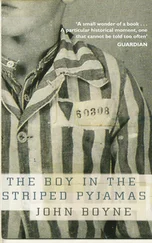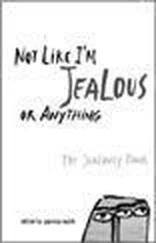Grieving, I read novels about the sea, borrowed from the “jailhouse” library: Moby-Dick, Captains Courageous, The Sea Wolf, Lord Jim, Typhoon, Hornblower and the Atropos, The Narrative of Arthur Gordon Pym of Nantucket, The Cruel Sea , and Billy Budd. ( The Adventures of Huckleberry Finn was on the shelf — it has followed me throughout my life — but I didn’t read it.) I was drowning — eaten by the salt of corrosive loneliness. I had no friends; no one to confide in; no Jim in his own skin or — by the mystery of transmigration — in another’s. In the perverse way of a child, I would behave insolently to increase my isolation. I’d give my jailers no other choice than to punish me with solitary confinement. We will sometimes reach a point when the only antidote to pain is more pain. Have you noticed that? I have no wish to dwell on the sorrows of those years.
You’re right. They were, by and large, self-inflicted sorrows. My sullenness and refusal to acknowledge the threat of the delinquent boys testing me for weakness saved me from the common curse of hazing. I was feared by some and thought crazy by others. For the most part, I was deemed unworthy of tormenting or befriending. I went my own way. And so one year yielded to the next and that one to the third and last of my captivity. I thought of myself as a frontier boy carried off by hostiles and made to practice savage customs, wear paint, and sleep in army blankets infected with typhus, as sweet a gift as the poisoned dress Medea gave to Glauce. (My mind imagines torments devilish as Torquemada’s.)
Enough of this. I’ve wasted breath already on that court-ordered sandbagging — breached, in time, by time’s irresistible flood. And breath reminds me of a fourth reason I hated those three years: They took away my corncob pipe!
The day of my release arrived. All things — good or bad — do finally come, whether we wait for them or not. They are the stations on our way to Calvary, or paradise. But before I leave the year 2008 forever, I promised to tell you about my six days in the children’s ward.
See this tattoo on my arm? Looks like a bruise. Time has made it nearly illegible. It’s a man-of-war that sailors in my day had needled on their arms. I was reading White-Jacket; or The World in a Man-of-War —another Melville novel in the library of the “juvie” home. We had plenty of books — most, undusted and unread — donated by the widow of a judge who had presided over the Union County family court. I can still see his name on the bookplate: The Honorable Edward Renn. I pictured a thin, dried-up man like a specimen in a taxidermist’s shop. Years later, I sent a thank-you note to his widow, who kindly sent me back a photo of her late husband. He looked nothing like the household wren that had nested in my mind. Isn’t it always so? We’re confounded by the chasm yawning between what is the case and what we believe it to be.
The tattoo?
I did it myself with a tattoo gun I made with a toothbrush, guitar string, empty ink pen, and an electric motor scavenged from a tape recorder. Most of the “JDs” did the same, but mine was the only man-of-war. I waited for the scab to heal, to show it off; but my arm got infected, badly. Sick and feverish, I was taken to a hospital with a ward for convict children. I was put to bed next to an older boy who’d lost both legs under a freight car during a rumble. He’d been a gang leader famous in Bedford-Stuyvesant for his knife. I recognized Huck Finn in him as he might become — stumps weeping into plastic bags.
Delirious, I remember dreaming about a pig dressed in a white nightshirt and cap, living in a little white house. It was night, the sky pitch-black, with a moon that would drift over the pig’s roof. There was a noise, like a wasp. The pig would come out his door and, picking up the house, carry it from under the moon. But when the pig went inside again, the moon moved over his roof. On and on it went till I woke — pajamas drenched in sweat. I felt better, and next day was sent back to finish my sentence. I sometimes think my fever’s cause had to do with my withdrawal from open water; I’d burned up in its absence. Sentence at an end, I left that hatchery of neuroses and the wish for death and went to work in a boatyard on the Jersey coast near Tuckerton.
MS. BOWERS, THE SOCIAL WORKER who had overseen my rehabilitation (as complete a one as the intractability of my genetic inheritance allowed), had found a job for me that she judged compatible with my rearing and my reigning interests. I rented a room in Tuckerton, above a secondhand store, and began, like Horatio Alger, to rise. I swept the factory floor, learned to lay up fiberglass, became, in time, a member of the engine crew. I discovered I could talk to anyone and, like the late Edgar, was quick on my feet and — dare I say it? — charming and urbane. By the time I turned twenty-eight, I was selling the boats I’d helped to build — ironically, to New Jersey fishermen who traveled the Atlantic Intracoastal Waterway to winter in the Florida Keys.
Frankly, the memory of my sales career bores me. I regret those fifteen years as lost. I was not myself. I wore Italian shoes and shirts, drove a Maserati, smoked Turkish cigarettes, bullied and blandished on my mobile phone, sent vapid messages by Twitter and text. My God, in my thirties, I wore my hair in dreadlocks! It was a waste of spirit when I never once saw Jim or heard Tom’s voice. I was being punished, I suppose, for having renounced Huck. I had let him go willingly, and my deepest self was in revolt against the person who had, for reasons of self-government, usurped it: me. I’d walked away from the mirror, leaving Huckleberry to languish in an imaginary room. I was conscious of none of this, of course. I sensed only a dissatisfaction with my life and a disapproval of all who resembled me. In a word, I was unhappy. Meanwhile, the true center of my life as a man lay 3,500 miles from New Jersey, in the Netherlands. I tell you, I long to break off my story here and now and take up the thread again in Holland, in 2034, when I was forty-three. But you would carp were I to leap, summarily, across the Atlantic without an acknowledgment of the intervening years. I’ll be brief, as befits a waste of time.
I excelled in turning a vague interest into desire. I succeeded because I understood desire. I did not sell boats so much as seduce men and women into wanting what lay behind the words I spun from endless spools into stories of glamour, adventure, sex. I created illusions of a reality as palpable as a rabbit lifted by its ears from a magician’s hat. In the common parlance, I had the touch; money first found, then sought me out, the way money does for some few people who know how to price and sell a dream. I taught men and women to want what they did not need.
In my late thirties, I sold my deep understanding of human vanity and self-love to a builder of opulent super-yachts. I’d handled million-dollar fishing boats; now I would broker vessels ten or twenty times more costly. I moved to Palm Beach and enriched myself. I wore suits handmade in London by Burberry Prorsum and traded my corncob and Virginia burley for a meerschaum and Dunhill’s deluxe navy rolls, which I lit with a Ligne pink-gold lighter instead of a locofoco. I lived with a woman who saw herself as a canvas for the artists of haute couture; her husband was serving time for a Ponzi scheme. I lavished her with expensive gifts and amorous glances because they were her raison d’etre, while I sold 120-foot boats to a prime minister, several princes of the realm, assorted oil magnates, financiers, industrialists, entrepreneurs of social media — and, once, to a sheik who kept his yacht in the waterless Sahara, cradled on a pair of railroad trestles painted gold.
Читать дальше












